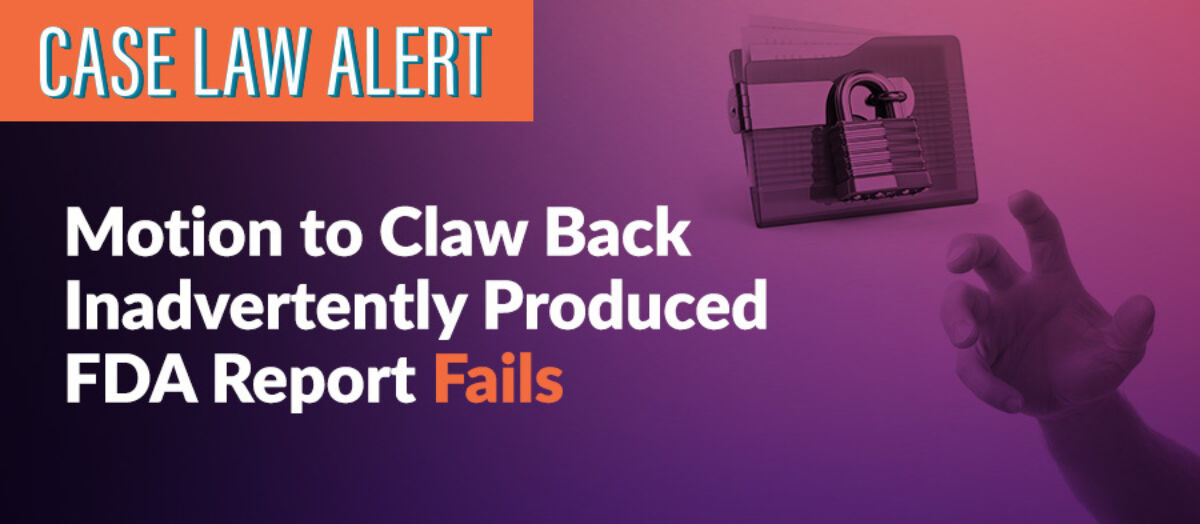Cybersecurity Compliance
Motion to Claw Back Inadvertently Produced FDA Report Fails

Why This Alert Is Important
While FRE 502 and FRCP 26 both offer litigants the possibility of clawing back documents inadvertently produced during discovery, the general requirements of the rule do not outweigh the specifics of a clawback agreement entered into by both parties.
Overview of the NY DFS Cybersecurity Regulation Amendment
In this product liability litigation, plaintiffs alleged that defendant manufactured a defective medical device that caused serious injuries during a surgery performed on one plaintiff.
During discovery, the parties became embroiled in a dispute over an Establishment Inspection Report issued by the FDA that defendants inadvertently produced. Defendants moved to claw back the EIR as a confidential document because it was:
- Protected by work-product privilege, and
- Irrelevant, since it did not cover the precise product in the case.
Platintiff argued that the report was non-confidential and non-privileged, as well as relevant to their allegation that the defendants’ process for detecting defects was “slow and too late for most patients.”
Ruling Summary
- Document found to be confidential. Defendants argued that the EIR was subject to clawback since it was confidential, while plaintiffs argued that such reports are publicly available under FOIA requests. Given that public available versions (such as for FOIA) would be redacted and the presence of information “customarily kept private or closely held” in the production, the court found that the EIR was confidential and subject to the protective order in the case
- Relevance not grounds for clawback. However, the court rejected the defendants’ argument that responsiveness and relevance were grounds for clawback in this case. “[B]oth Rule 502(b)(3) and Rule 26(b)(5)(B) specifically apply to privileged communications or information,” and the parties entered a clawback agreement that did not “[expand] the ability to claw back documents because of responsiveness or relevancy,” Defendants could not claw back the EIR on the basis of its relevance. In addition, court found that the information in the EIR was relevant as it directly addressed plaintiff’s allegations about defendants’ processes.
- Clawback motion denied. Defendants argued that because the report was collected “in anticipation of litigation,” it could be considered work-product and clawed back. However, the court rejected this argument on the grounds that the inadvertent production did not “reveal the selection process used by defendants’ counsel… [or ] their mental impressions or legal opinions.” Therefore, it could not be considered work-product and privileged.
I have long advocated for the use of Federal Rule of Evidence 502(d) non-waiver of privilege orders, and the parties had such an order here. Had the document at issue been privileged, the 502(d) order would have allowed for the producing party to claw it back. But nothing in Rule 502 or its advisory committee history allows for clawback of a non-privileged document just because it is not relevant
Case Law Tip
Have questions on how the FRCP applies to e-discovery? Want to make sure your arguments align with critical rules governing e-discovery? Download this FRCP E-Discovery Quick Guide to get all your questions answered.